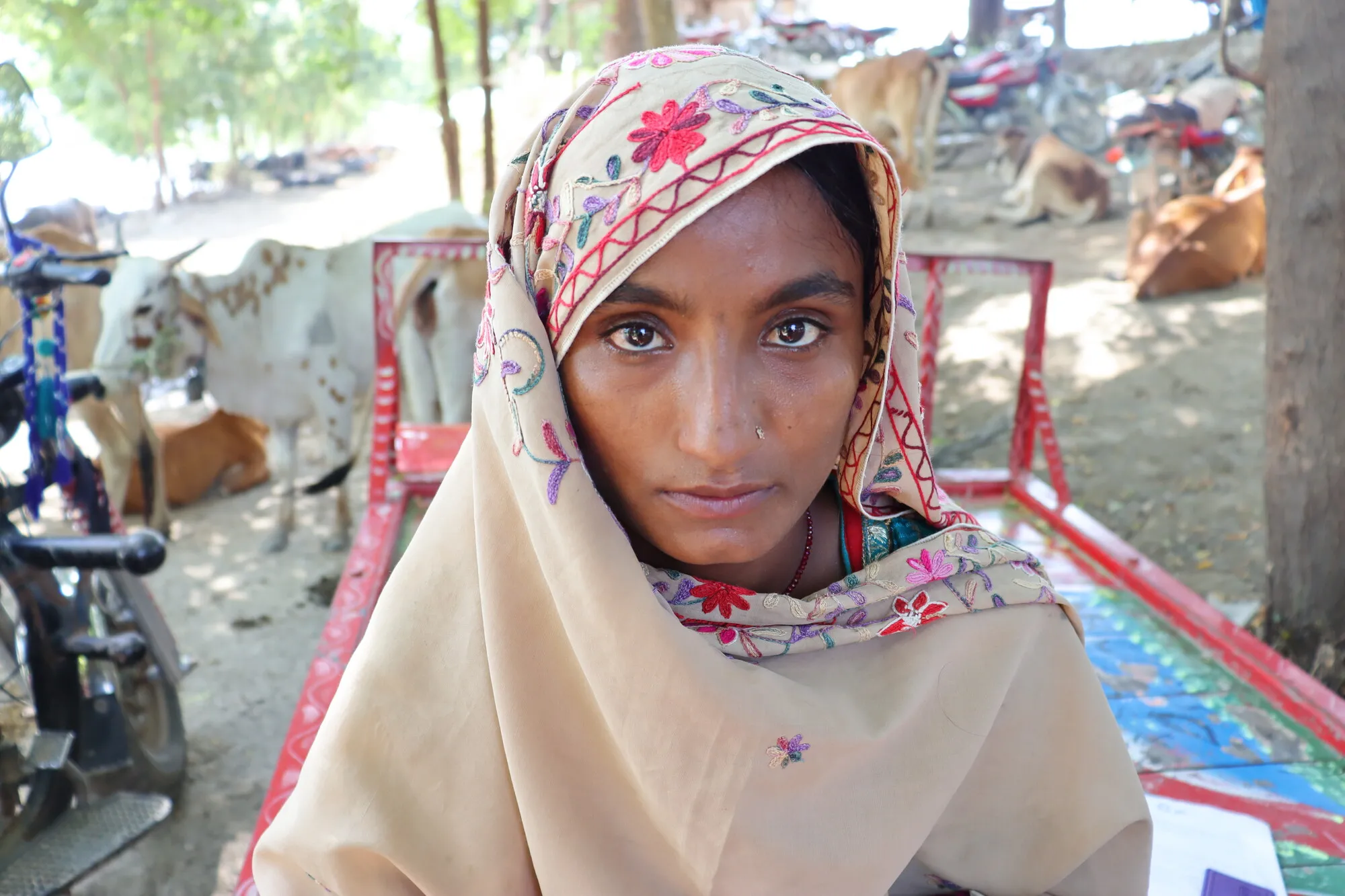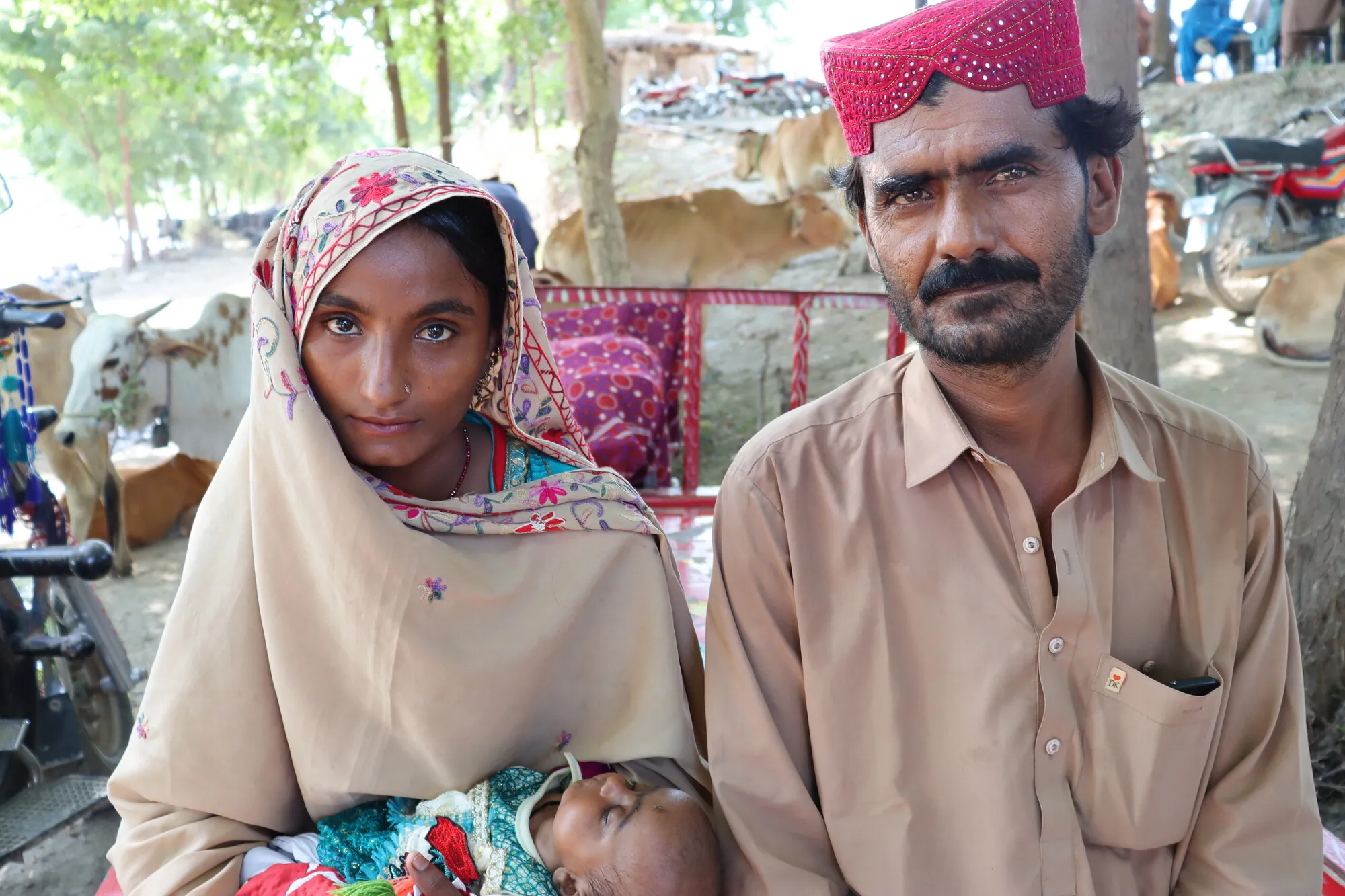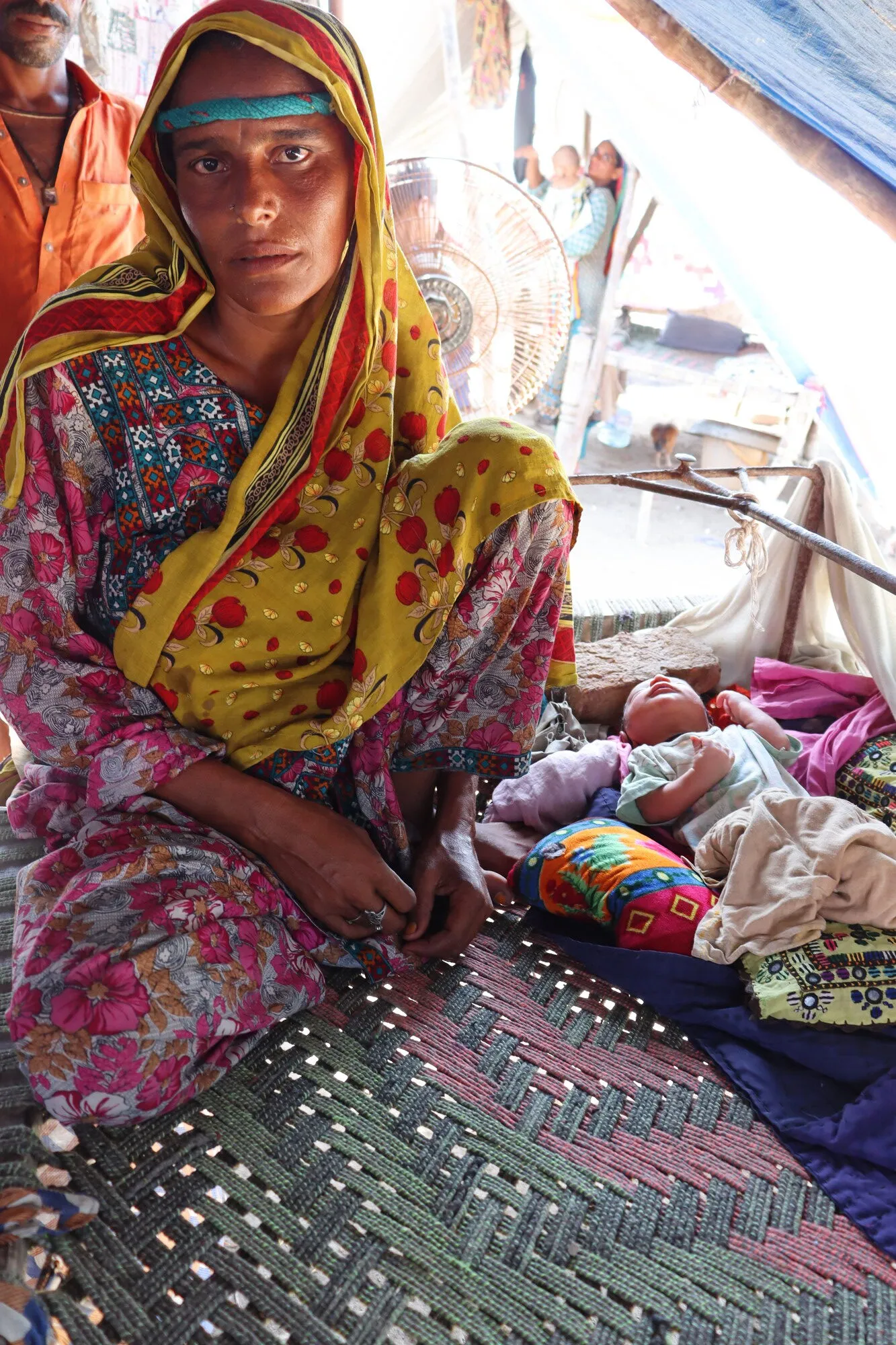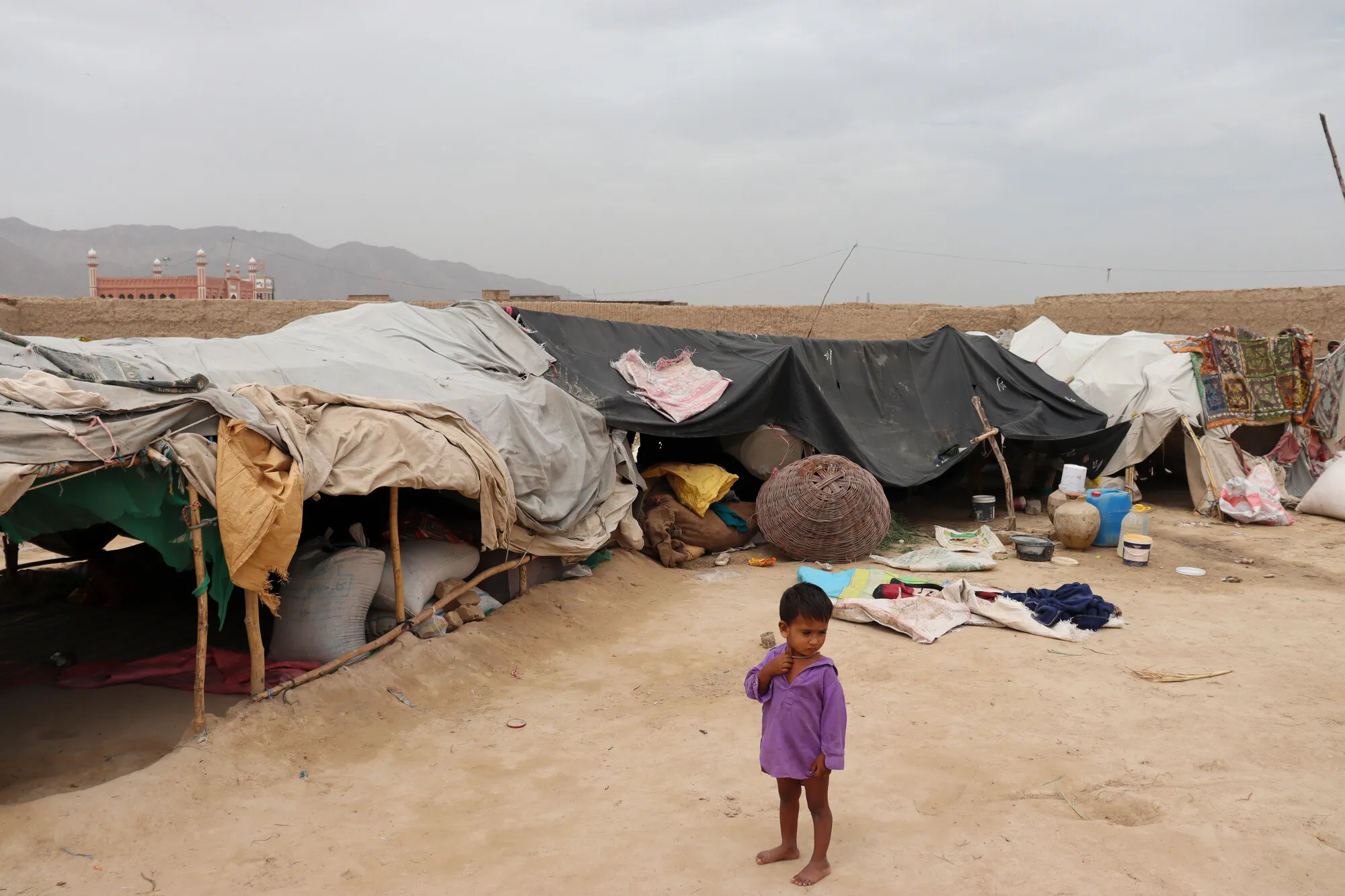For the past few days since the baby was born, Zarbano has had trouble walking, especially when she has had to go into the fields to use the bathroom. Her newborn has had no medication or vaccinations, which she says puts him at great risk.
Since the crisis began, CARE has been providing shelter kits with everyday essentials like toothbrushes, underwear, towels, soap, water purification tablets, jerry cans, and mosquito nets, along with tarpaulins, rope, and emergency latrine kits.
But the needs of the country continue to grow, even as the immediate crisis has stabilized. Zarbano’s situation, like Mai’s, is widespread for women and families struggling in the flood’s aftermath.
There is a real fear that the climate crisis could mean emergencies like these will become the new normal.
“These floods are some of the worst Pakistan has ever seen,” Sheraz says, “This is what the climate crisis looks like.”
“Today, it’s Pakistan. Tomorrow, it could be another country.”
The Pakistan Meteorological Department estimates that the country has already experienced more than twice the amount of rainfall expected annually, even though it’s only September. And this disaster comes only a few months after a record-breaking heat wave roiled the country in May and June.
The series of disasters adds to a global picture of widespread climate disruptions, where countries like Pakistan, which has contributed less than 1% of the cumulative global carbon emissions since 1750, suffer some of the most devastating effects of the crisis in 2022.
Following the initial disaster response, CARE plans to support the recovery of flood-affected communities by rehabilitating or constructing permanent shelters, water systems, and household latrines. As part of the long-term recovery, CARE also plans to work restoring incomes and livelihoods by providing agricultural resources such as seeds, tools, and poultry kits, as well as cash assistance where delivery of relief materials isn’t possible.
“CARE has already started supporting communities, but the need is enormous,” Sheraz went on. “We appeal to the international community for urgently-need funds so we can scale-up our efforts to provide immediate emergency relief and longer-term recovery assistance. The people of Pakistan have a long and difficult road ahead and need our collective support now.”
To learn more about how CARE is helping flood victims in Pakistan, please visit the emergency relief page here.




